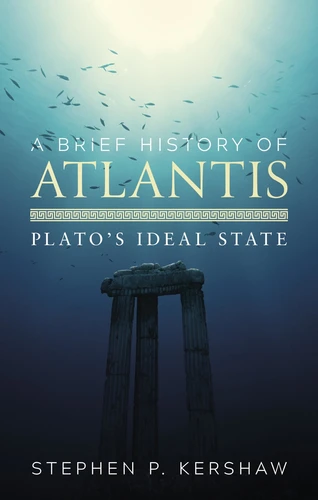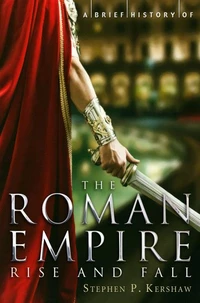A Brief History of Atlantis. Plato's Ideal State
Par :Formats :
Disponible dans votre compte client Decitre ou Furet du Nord dès validation de votre commande. Le format ePub protégé est :
- Compatible avec une lecture sur My Vivlio (smartphone, tablette, ordinateur)
- Compatible avec une lecture sur liseuses Vivlio
- Pour les liseuses autres que Vivlio, vous devez utiliser le logiciel Adobe Digital Edition. Non compatible avec la lecture sur les liseuses Kindle, Remarkable et Sony
- Non compatible avec un achat hors France métropolitaine
 , qui est-ce ?
, qui est-ce ?Notre partenaire de plateforme de lecture numérique où vous retrouverez l'ensemble de vos ebooks gratuitement
Pour en savoir plus sur nos ebooks, consultez notre aide en ligne ici
- FormatePub
- ISBN978-1-4721-3700-5
- EAN9781472137005
- Date de parution13/09/2017
- Protection num.Adobe DRM
- Infos supplémentairesepub
- ÉditeurRobinson
Résumé
The Atlantis story remains one of the most haunting and enigmatic tales from antiquity, and one that still resonates very deeply with the modern imagination. But where did Atlantis come from, what was it like, and where did it go to?Atlantis was first introduced by the Greek philosopher Plato in two dialogues the Timaios and Kritias, written in the fourth century BC. As he philosophises about the origins of life, the Universe and humanity, the great thinker puts forward a stunning description of Atlantis, an island paradise with an ideal society.
But the Atlanteans degenerate and become imperialist aggressors: they fight against antediluvian Athens, which heroically repels their mighty forces, before a cataclysmic natural disaster destroys the warring states. His tale of a great empire that sank beneath the waves has sparked thousands of years of debate over whether Atlantis really existed. But did Plato mean his tale as history, or just as a parable to help illustrate his philosophy?The book is broken down into two main sections plus a coda - firstly the translations/commentaries which will have the discussions of the specifics of the actual texts; secondly a look at the reception of the myth from then to now; thirdly a brief round-off bringing it all together.
But the Atlanteans degenerate and become imperialist aggressors: they fight against antediluvian Athens, which heroically repels their mighty forces, before a cataclysmic natural disaster destroys the warring states. His tale of a great empire that sank beneath the waves has sparked thousands of years of debate over whether Atlantis really existed. But did Plato mean his tale as history, or just as a parable to help illustrate his philosophy?The book is broken down into two main sections plus a coda - firstly the translations/commentaries which will have the discussions of the specifics of the actual texts; secondly a look at the reception of the myth from then to now; thirdly a brief round-off bringing it all together.
The Atlantis story remains one of the most haunting and enigmatic tales from antiquity, and one that still resonates very deeply with the modern imagination. But where did Atlantis come from, what was it like, and where did it go to?Atlantis was first introduced by the Greek philosopher Plato in two dialogues the Timaios and Kritias, written in the fourth century BC. As he philosophises about the origins of life, the Universe and humanity, the great thinker puts forward a stunning description of Atlantis, an island paradise with an ideal society.
But the Atlanteans degenerate and become imperialist aggressors: they fight against antediluvian Athens, which heroically repels their mighty forces, before a cataclysmic natural disaster destroys the warring states. His tale of a great empire that sank beneath the waves has sparked thousands of years of debate over whether Atlantis really existed. But did Plato mean his tale as history, or just as a parable to help illustrate his philosophy?The book is broken down into two main sections plus a coda - firstly the translations/commentaries which will have the discussions of the specifics of the actual texts; secondly a look at the reception of the myth from then to now; thirdly a brief round-off bringing it all together.
But the Atlanteans degenerate and become imperialist aggressors: they fight against antediluvian Athens, which heroically repels their mighty forces, before a cataclysmic natural disaster destroys the warring states. His tale of a great empire that sank beneath the waves has sparked thousands of years of debate over whether Atlantis really existed. But did Plato mean his tale as history, or just as a parable to help illustrate his philosophy?The book is broken down into two main sections plus a coda - firstly the translations/commentaries which will have the discussions of the specifics of the actual texts; secondly a look at the reception of the myth from then to now; thirdly a brief round-off bringing it all together.









